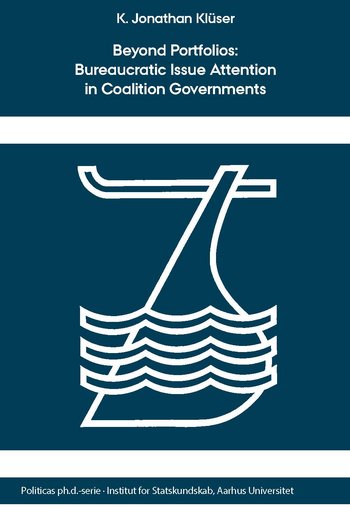K. Jonathan Klüser
Beyond Portfolios: Bureaucratic Issue Attention in Coalition Governments

This is a dissertation about ministerial policy-making in coalition governments. Yet, while putting ministers centre-stage, it questions whether ministers are the dominant figures commonly assumed. In many instances, several ministers attend to one and the same policy issue and, hence, effectively share responsibility. Allowing for such overlapping ministerial jurisdictions opens a new avenue for ministers and their parties in coalition governments to both design policies and fend off potential attacks on already agreed policy compromises. Drawing on novel data on the extent to which ministries attend to individual policy issues in five Danish, seven Dutch, and four German coalition governments from about 1995 to 2010, the dissertation examines how parties’ interest in policy issues travels through the processes of coalition formation, management, and policy-making. It shows how parties struggle to garner influence over policy issues that are important to them and how coalitions are reluctant to allow one party to monopolise control of mutually salient policy issues. Zooming in on situations where incumbent parties’ preferences diverge, the dissertation describes how Danish governments intentionally increase the overlap of ministerial jurisdictions to contain policy disagreements between coalition partners. Lastly, with regard to policy-making, it highlights that unclear responsibility structures can effectively stymie ministerial attempts to initiate legislation. These results not only provide new insights into the internal operations of coalition governments but also suggest novel avenues to study the translation of voters’ preferences into final government policies in parliamentary democracies.
![]() Ophavsretten tilhører Politica. Materialet må ikke bruges eller distribueres i kommercielt øjemed.
Ophavsretten tilhører Politica. Materialet må ikke bruges eller distribueres i kommercielt øjemed.